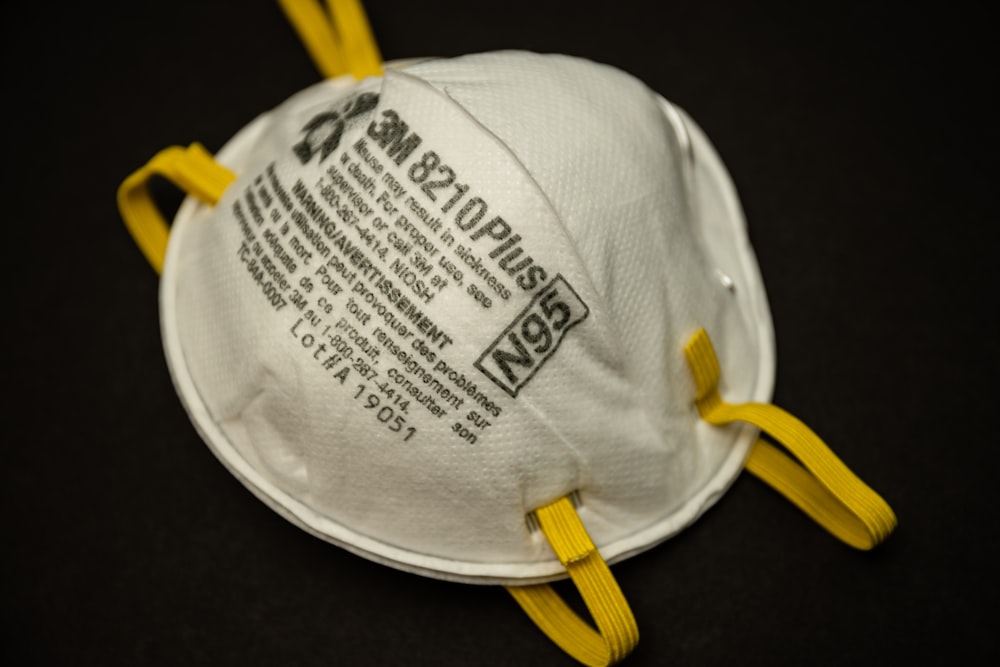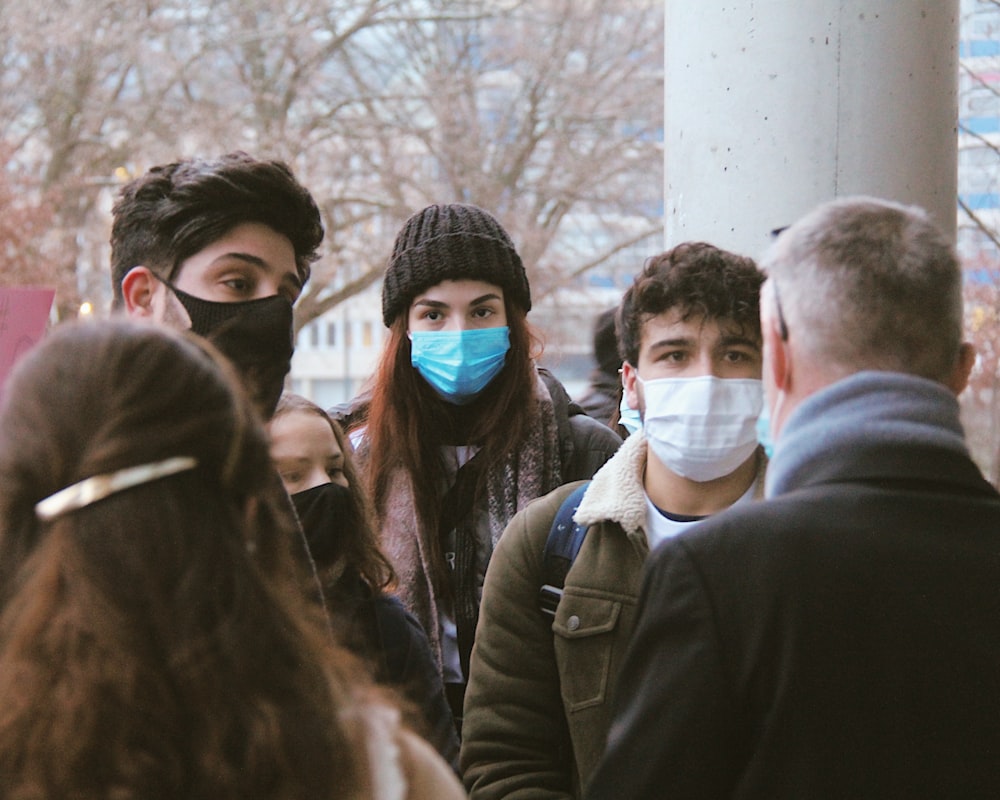
Researching which masks are the best masks for Covid protection is safer than arbitrarily buying just any mask. Since the outbreak of Covid-19, masks have been seen on everyone, everywhere. We’ve all been wearing masks to remain protected from the virus. While a couple of vaccines have been developed for Covid-19, research has revealed that face masks further help protect a person from spreading the virus.
Covid-19 protective masks are loose-fitting garments usually made of synthetic materials. They have ear loops or ties for securing the mask to your head, and they help block sprays of body fluids to help reduce the spread of germs. The droplets released in coughs, sneezes, and talking can carry germs that may cause illness, and masks help contain these germs.
Wearing a face mask while in public can reduce the number of germs that a sick person releases into the air, and help them protect others from getting infected. Masks may also protect the wearer from splashes and sprays of germ-filled bodily fluids.
Best Masks for Covid Protection: Which Masks are Most Effective?
We all know we should be wearing masks. The real question is, Which are the best masks for Covid protection, and why? There are several types of masks available in the market today, each with their own benefits and limitations. With so many factors in choosing the most effective mask against Covid-19, getting just the right kind can be confusing, especially if you don’t know the clinical setting where it will serve most useful. It’s helpful to know what qualities you’re looking for in a mask, and which features make a mask one of the best masks for Covid protection. Below, we’ll review some types of masks to help you make an informed decision:

N 95 Respirators
According to the National Institute for Occupational Safety and Health (NIOSH), filtering facepiece respirators (FFRs) provide better protection than typical respirator masks due to their filtering efficiency. These are some of the absolute best masks for Covid protection. NIOSH has approved many types of FFRs but the specially labeled “surgical” N95 respirators should be reserved for use by healthcare personnel. The N95 filtering facepiece respirator is the most widely known type.
This mask is a lightweight filtering facepiece prescribed for protection against pretty small particles. It is the most commonly used filtering facepiece respirator (FFR) in the United States. The number indicates that the respirator mask filters out 95% of airborne particles. In other words, if 25 cubic centimeters of air-containing particles are drawn through the filter from a clean source, at least 23.75 cubic centimeters of air, which is 95% of the measured volume, must remain on the outside of the filter after the test.
KN95 Respirators
A KN95 respirator is China’s national standard for protecting workers and the general public from airborne pollutants and particles that are at least 95% efficient. The “K” in KN95 mixes up the order of the standard abbreviation commonly used to denote masks and filter cartridges’ filtration efficiency (such as P100, N95, N99, FFP3, etc.) Much like the N95 Series masks, it is a disposable high-filtration respirator designed to filter out at least 95 percent of airborne particles above 0.3 microns or larger.
Surgical Masks
If you’re using a surgical mask, you may be using one of the best masks for Covid protection for general use. However, these masks come in several performance levels with different filtration efficiency and breathability. All surgical masks can lower the risk of infection by blocking large droplets that come from an infected person’s cough or sneeze. These disposable masks may be loose around the edges and may leave gaps at the nose that can become entryways for viruses. Instead, choose a mask with multiple layers of non-woven material, which creates a tight seal to block particles. Look for a mask with a nose wire, which keeps the mask secure without pinching or scraping your face.
Cloth Masks
Cloth masks are made of layers of breathable fabric that block out dangerous particles. However, this comes with no guarantee against catching the coronavirus. While you may think a cloth mask needs to be thrown away after each use, these masks are among the easiest types of face masks to launder, clean and reuse. They are available in various sizes, styles, and materials. In addition, some brands offer cloth masks with custom-fitted facial contours that have nose wires and fit snugly against your face.

Factors to Consider While Selecting Protective Face Masks
The effectiveness of a respirator depends on its fit and the comfort of the wearer. The mask or respirator should be worn correctly and should not be removed between work cycles, as that could reduce its usefulness.
- Young children have a smaller respiratory tract than adults, and some respirator facepiece designs can pose a choking hazard to them. Because of this, masks and respirators should not be worn by children younger than 2 years.
- Always follow the user instructions for the mask or respirator. These instructions will tell you how to wear the mask or respirator correctly to fit appropriately.
- Respirators must not hinder breathing. If your respirator makes it hard to breathe, it is not properly fitted, and you should get a new one.
- The mask should fit comfortably over the face and must not obstruct the eyes or vision in any way. It should also allow for easy breathing and speaking through it while ensuring that the nose and mouth remain protected at all times.
- Do not wear a mask or respirator that is wet or dirty – these masks and respirators can become ineffective and dangerous, and should be replaced.
- Check the cloth mask for proper ties or ear loops that keep it in place. It should be washable and withstand drying without losing its shape or breaking.
- It is recommended that you take frequent breaks while wearing such masks to breathe fresh air and stay hydrated. If your doctor has advised you against wearing an N95 respirator, you could try other types of masks.
- When purchasing a cloth mask, check the manufacturer’s instructions for compliance with the Centers for Disease Control safety guidelines or those of your local hospital. Purchase a mask made of multiple layers of fabric to maximize durability and flexibility.
The Bottom Line
Like with any new health alert, it’s an astute idea to take the recommendations of some public health officials seriously. If you want to protect yourself and your family, pay attention to advisories about avoiding contracting Covid, and follow their advice.
While most people with confirmed Covid-19 cases have been vaccinated against the virus, it’s still judicious, according to some, to wear face masks in crowded public places or in areas where transmission of Covid-19 has been reported as high.
While it’s possible that you can still get Covid and spread Covid even if you wear one of the best masks for Covid protection, you should still wear them as an extra safety precaution.
Further safety precautions aside from wearing a mask include frequent hand washing, social distancing, avoiding large gatherings and frequently testing your current Covid-19 status.
Since many people don’t experience any Covid symptoms when they have the virus, your best bet is to frequently test yourself for Covid by using an at-home, portable testing device such as the Circle HealthPod rapid Covid test.






